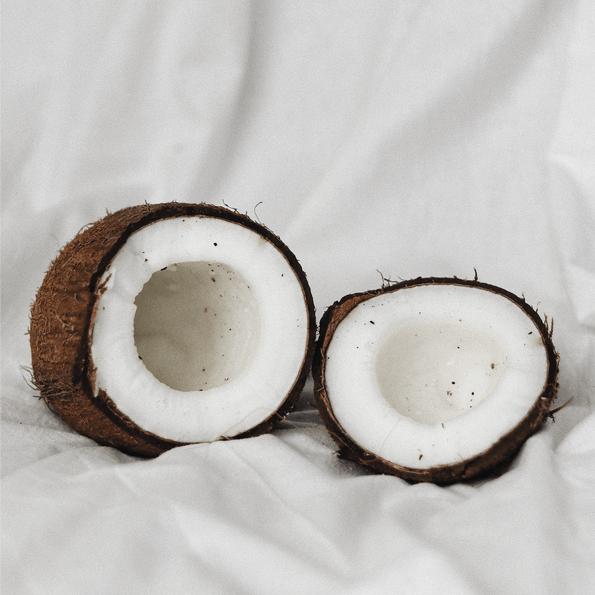The science behind healthy fats
Posted
Updated October 06, 2025

Posted
Updated October 06, 2025
-v1590706061764.jpg?4016x6016)

Back in the low-fat days of the last century, consumption of dietary fat was believed to be linked to heart disease. Scientists and doctors alike were encouraging everyone to reduce their fat intake. As a result, highly processed foods where the fat had been replaced with sugar flooded the market. Fattier foods were replaced with refined grains, in the hopes that it would make North Americans healthier. What actually happened was a rapid rise in rates of obesity, diabetes, and despite predictions, heart disease (1). Fast forward to today: we are becoming more and more aware of the nuances of the dietary fat discussion and the value of dietary fat for optimal health. While the science of fat in our food and in our bodies can get a little complex, eating well and choosing the right fats for your body doesn’t have to be difficult.
What we know now is that fat is absolutely vital to our health. Every cell in our body is surrounded by a membrane that’s made up of lipids, the building blocks of fats. Our brain cells are covered in a protective coating called myelin sheath, which is also made up of fats. Our bodies also use some fats to balance our immune system, ensure a low level of inflammation, build our sex hormones, and regulate our appetites. An absence of adequate dietary fat can result in a disruption of some or all of those bodily functions. So, for most people, there are a lot of health benefits to eating fat.
We do have to be considerate of the type of fat we are eating. Fat is a calorically dense food, which means that you get a lot of calories from a small amount of fat. If you choose the “right” kind of fat, that calorically dense food will also become nutrient dense; chock-full of vitamins A, E and K, minerals, and electrolytes needed to keep your body healthy, as well as lots of lipids that your body will use to keep your cells happy. The source of your fat does matter; the one thing that 20th century nutrition scientists did get right is that trans fats are bad for us - they do actually increase our risk of heart disease, heart attack and stroke, and increase general systemic inflammation (2). The World Health Organization now considers all trans fats to be harmful for health, and recommended that they make up no more than 0.9% of a person’s diet (3). Trans fats are found in trace amounts in meat and milk fat, and in large amounts in many packaged and processed foods, anything “hydrogenated”, and almost all deep fried products. Saturated fats are not anywhere near as unhealthy as trans fats, but do need to be consumed in small amounts. They're primarily found in meat, butter, lard and coconut oil - any of the fats that are solid at room temperature. Most nutrition experts recommend limiting your consumption of saturated fats to about 10% of your daily caloric intake.
Based on our current understanding of nutrition science, the healthiest fats are those that are naturally occurring. They can be found in fatty fish, like salmon, tuna, trout, sardines, and plants, like avocados, nuts, seeds, and coconut. Coconut has recently hit the spotlight as a great source of healthy fats, especially for people who are following a ketogenic diet, or looking to boost their energy through the day. Coconut is an especially beneficial source of healthy fats because it’s a source of medium-chain triglycerides (MCT). MCTs are a specific type of fat molecule that is easily absorbed by the body and can be used quickly as fuel by our cells. Extra virgin, unrefined coconut oil is a great option for baking or cooking, because of its high smoke point. However, it is a saturated fat, so it needs to be consumed in moderation. Pure MCT oil is made by extracting the MCTs from coconut oil, and is a liquid at room temperature. It’s lower in calories than coconut oil, and there are many studies showing that it may have a positive impact on weight management, appetite control, digestive health and leaky gut, support brain health, manage blood sugar, and even promote heart health (4,5,6,7,8,9). Getting a small amount of healthy fats in your diet is one of the keys to achieving and maintaining good health. Coconut and MCT oil are a great option for most people. MCT oil can now easily be found in many products, including in powder form, which makes it super easy to blend into your morning coffee or smoothie. They can also act as a replacement for dairy-based creamers or chemical-laden coffee whitener products.
 References
References
-v1590706061764.jpg?4016x6016)
Dr. Jessica Eastman is a licensed and registered naturopathic doctor in clinical practice in Vancouver BC. She is an experienced faculty member at the Institute of Holistic Nutrition, and the founder of Thrive clinical mentorship. Jessica strongly believes in integrative medicine and the value of a supportive community.
Get expert-backed health tips, education, product news, and exclusive offers delivered to your inbox.
Follow @organikahealth for your daily dose of feel-good. #LiveOrganikally